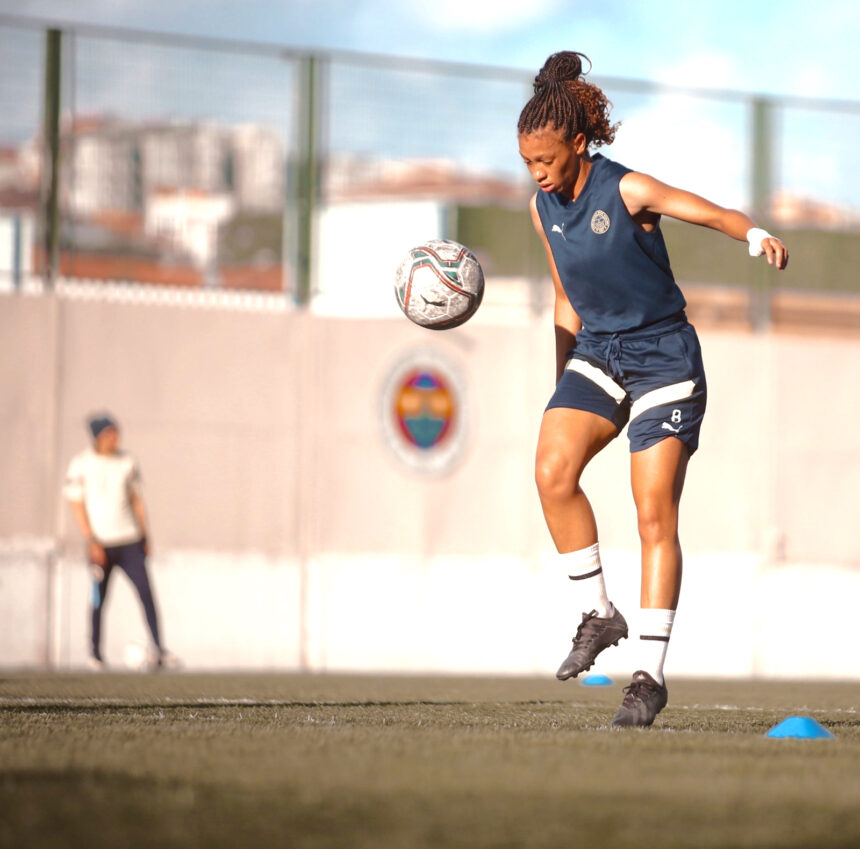Suzith Tjitaura
Professional footballer Zenatha Coleman says hard work, determination and discipline helped her get to where she is today.
Now playing winger for Turkish club Fenerbahçe, Coleman has in the past captained the Namibian women’s national team, the Brave Gladiators, and also played for Sevilla and Valencia in Spain.
With Namibia commemorating Heroes’ Day yesterday and with Coleman known for being an inspiration to many, Nampa recently sat down with the three-time Confederation of African Football (CAF) women’s footballer of the year nominee to discuss what being a hero means to her.
Coleman (30) was born in Keetmanshoop and grew up in the dusty streets of Lemoendraai in the Tseiblaagte residential area, surrounded by family members who loved and played football.
“My grandfather and my uncles were footballers and that is where my passion for football came from. Since I was young, I wanted to be a footballer, but I did not imagine that I would go this far. When I got into football more, I came to learn about Marta Vieira da Silva, and she still is my favourite footballer, I love her. I recently watched her play and she is still good at the game,” said Coleman.
According to Coleman, her late grandfather was her pillar as when things got hard, he was there to encourage and guide her.
“I remember crying one day and complaining to my grandfather that the training was hard. He told me: ‘If this is what you want, you take it. Or leave it.’ At that moment I knew I should toughen up for the challenges I encountered in the game I so much loved,” she said.
Coleman conceded that she was not good in schoolwork and considering the many challenges she faced including falling pregnant at the age of 18, she knew her only way to success was through football.
“When I wanted to give up, my family was there to support and urge me on, and I got the strength I needed knowing that football was what I wanted to do. Being in Keetmanshoop and playing football there was easy because my family was known in the town. However, coming to Windhoek for the national team was a different matter. There were challenges, but I did not pay attention to that because I had a plan of where I wanted to go,” said Coleman.
The Keetmanshoop Municipality recently renamed the street where Coleman grew up in her honour.
“The street renaming is such a great honour, I never dreamt of such a thing. I only saw this being done for elders that have passed on or who did extremely well for their communities. Being recognised as being such a person and at such a young age is really an honour,” the soft-spoken Coleman said.
Asked what being a hero meant to her, Coleman said a hero is someone who has done well in life and who people look up to for inspiration and guidance.
“It can be a family member, an actor or anyone who is influential in your life. My late grandfather, Johannes Thomas Coleman, is my hero because he raised me in a manner that led me to where I am today. He showed me how to have a good character, be disciplined, be respectful and be a religious child, so my late grandfather is my hero,” she said.
Asked if heroes are recognised as such for what they achieved or because of their character, Coleman said she believes it is character that is more important.
“It’s because of their character, who they are, because you get people who have achieved a lot in life but are not considered as heroes. I think character is what matters,” she said.
Asked if being looked up to by others feels like a burden, a joy or a responsibility, she said:
“It is a responsibility because people look up to you and you have to be well-behaved, you have to be disciplined at all times, but also, I consider it to be a joy because when a young person looks up to you, it brings you joy because it inspires them.”



